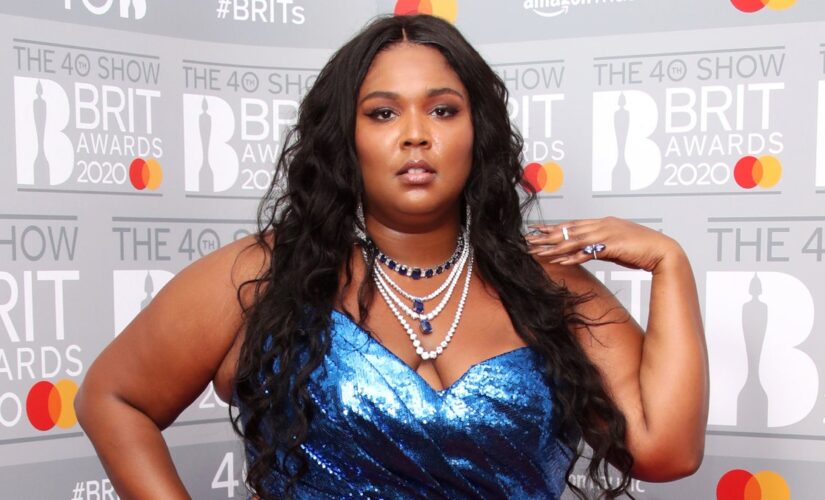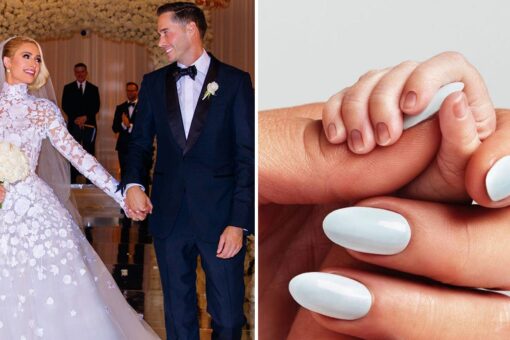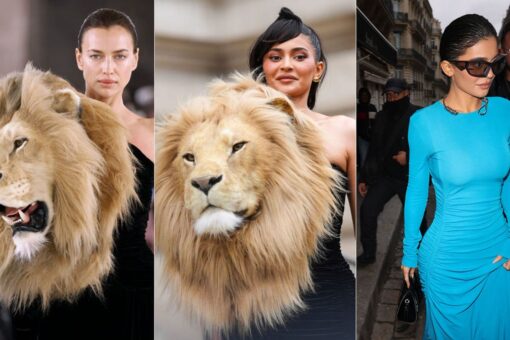Lizzo is speaking out about the criticism of her music that “disturbs” her the most.
The 34-year-old singer and rapper told Vanity Fair that the claim that her music was created for White people was the “biggest criticism” that she had received, adding that it was a “critical conversation” with regard to Black artists.
“When Black people see a lot of white people in the audience, they think, ‘Well this isn’t for me, this is for them,'” she said in a new cover story for the magazine’s November issue.
Lizzo denied claims that she makes music for a “white audience” which she said was the “biggest criticism” she had received.
(Getty)
She continued, “The thing is, when a Black artist reaches a certain level of popularity, it’s going to be a predominantly white crowd. I was so startled when I watched [YouTube clips of gospel great] Sister Rosetta Tharpe, who was an innovator of rock and roll. She was like ‘I’m going to take gospel and shred guitar,’ and when they turned the camera around, it was a completely white audience.”
The “Truth Hurts” hitmaker went on to cite other Black performers who drew predominantly White audiences including Tina Turner, Diana Ross, Whitney Houston and Beyonc?. She also noted audiences for rap artists are “overwhelming white.”
“I am not making music for white people,” she clarified. “I am a Black woman, I am making music from my Black experience, for me to heal myself [from] the experience we call life.”
The singer said, “The thing is, when a Black artist reaches a certain level of popularity, it’s going to be a predominantly white crowd.”
(Robert Okine/Getty Images)
“If I can help other people, hell yeah,” she added. “Because we are the most marginalized and neglected people in this country. We need self-love and self-love anthems more than anybody.
“So am I making music for that girl right there who looks like me, who grew up in a city where she was underappreciated and picked on and made to feel unbeautiful? Yes. It blows my mind when people say I’m not making music from a Black perspective–how could I not do that as a Black artist?”
The three-time Grammy Award winner’s music spans many genres including soul, hip-hop, R&B, gospel and pop. She is also a classically trained flutist who began learning to play the instrument when she was 10-years-old.
In her interview with Vanity Fair, the Texas native said that she was bullied when she was in high school and always felt “different.” She explained that she hid her love for rock music, which was seen as a White genre by her classmates at her predominantly Black school.
“I am not making music for white people,” she clarified. “I am a Black woman, I am making music from my Black experience.
( Kevin Mazur/Getty Images for The Recording Academy)
“I kept it hidden, even when I was in a rock band, because I didn’t want to be made fun of by my peers–they’d yell, ‘White girl!'” she said.
“Also, I was wearing these flared bell-bottoms with embroidery down it–and they’d say, ‘You look like a white girl, why do you want to look like a hippie?’ I wanted to be accepted so bad; not fitting in really hurt.”
Lizzo said that after connecting with Black women in the “real world” who told her that they were inspired by her music, she is no longer bothered by online criticism. She noted that as her music became more mainstream, she found she was able to connect with a fan base who saw and appreciated her authentic self.
“Not ‘that girl, she’s always happy, it’s not real,’ but instead, ‘She’s really good and her music is good, believe her,'” Lizzo said.
“That is what I’m moving into now, and it’s a beautiful place to be. I finally feel I can relax and have a cocktail.”




